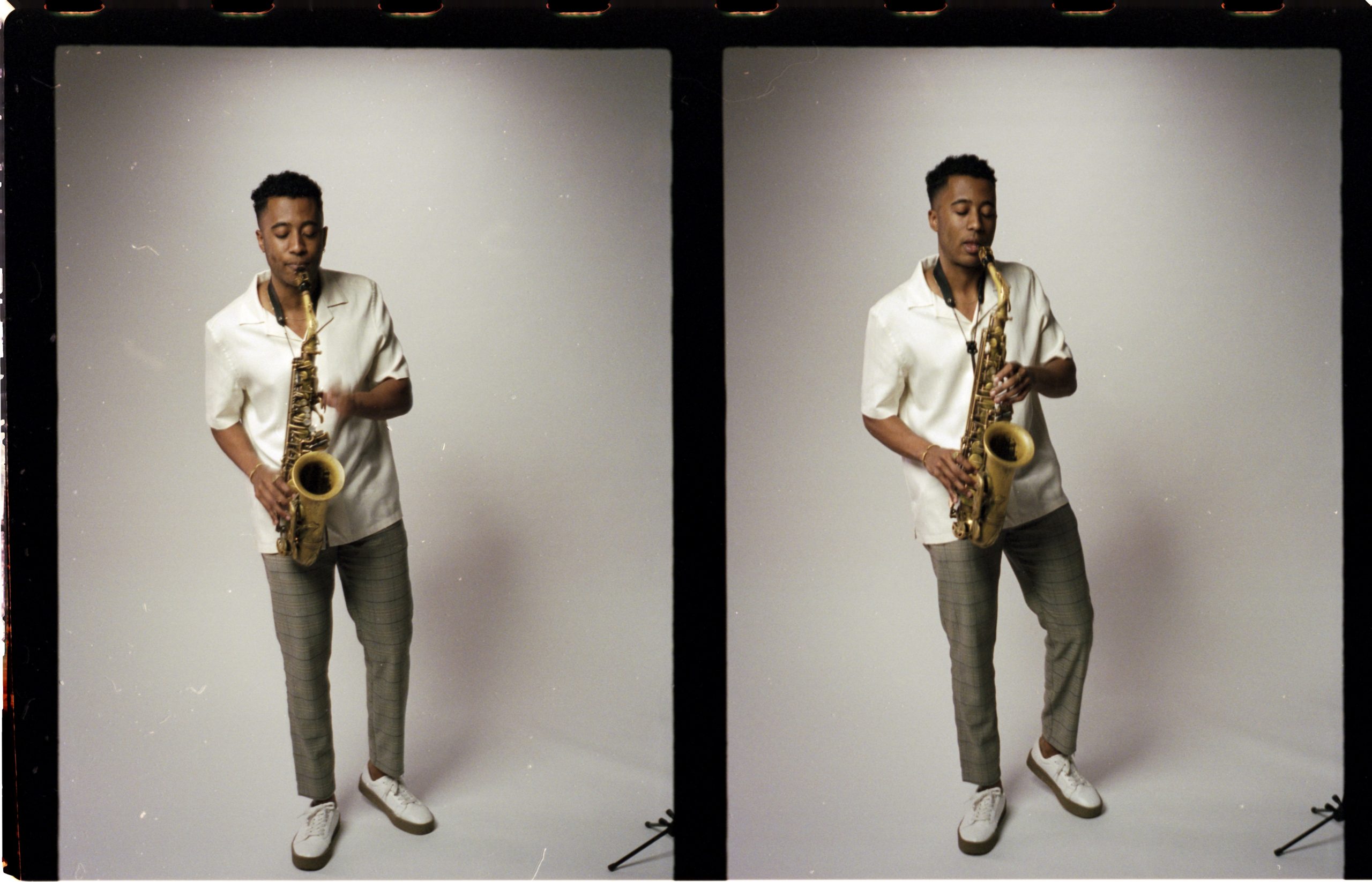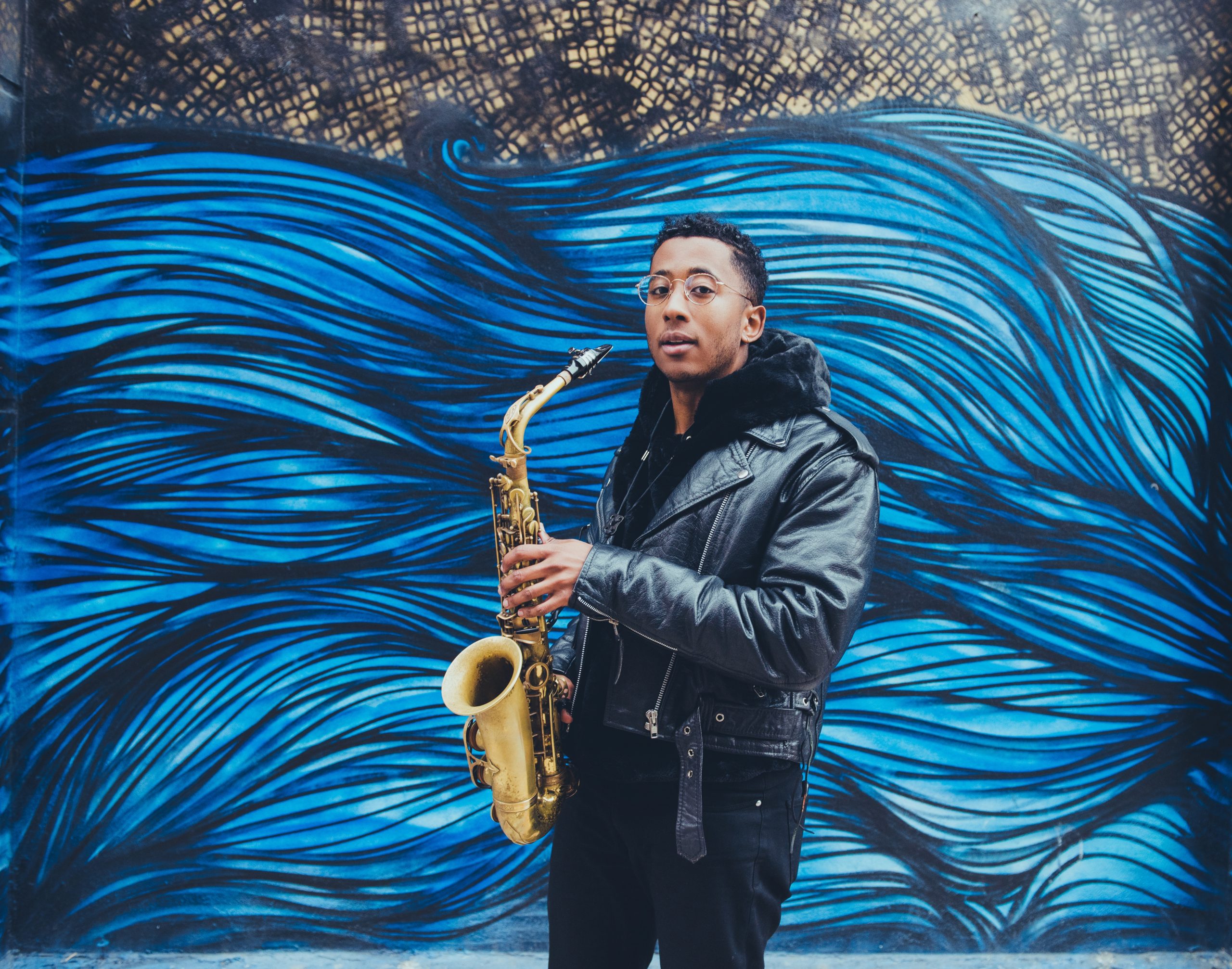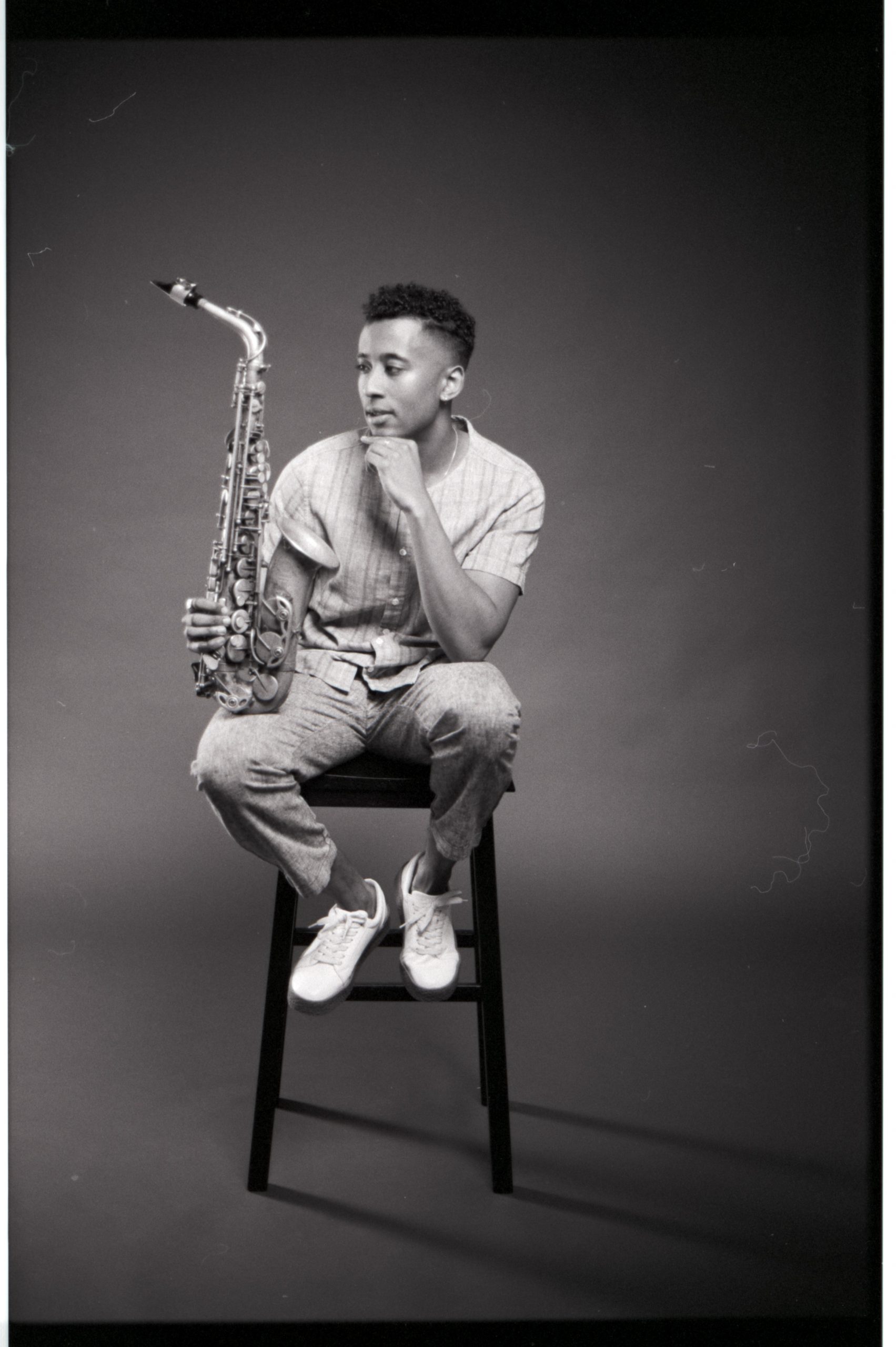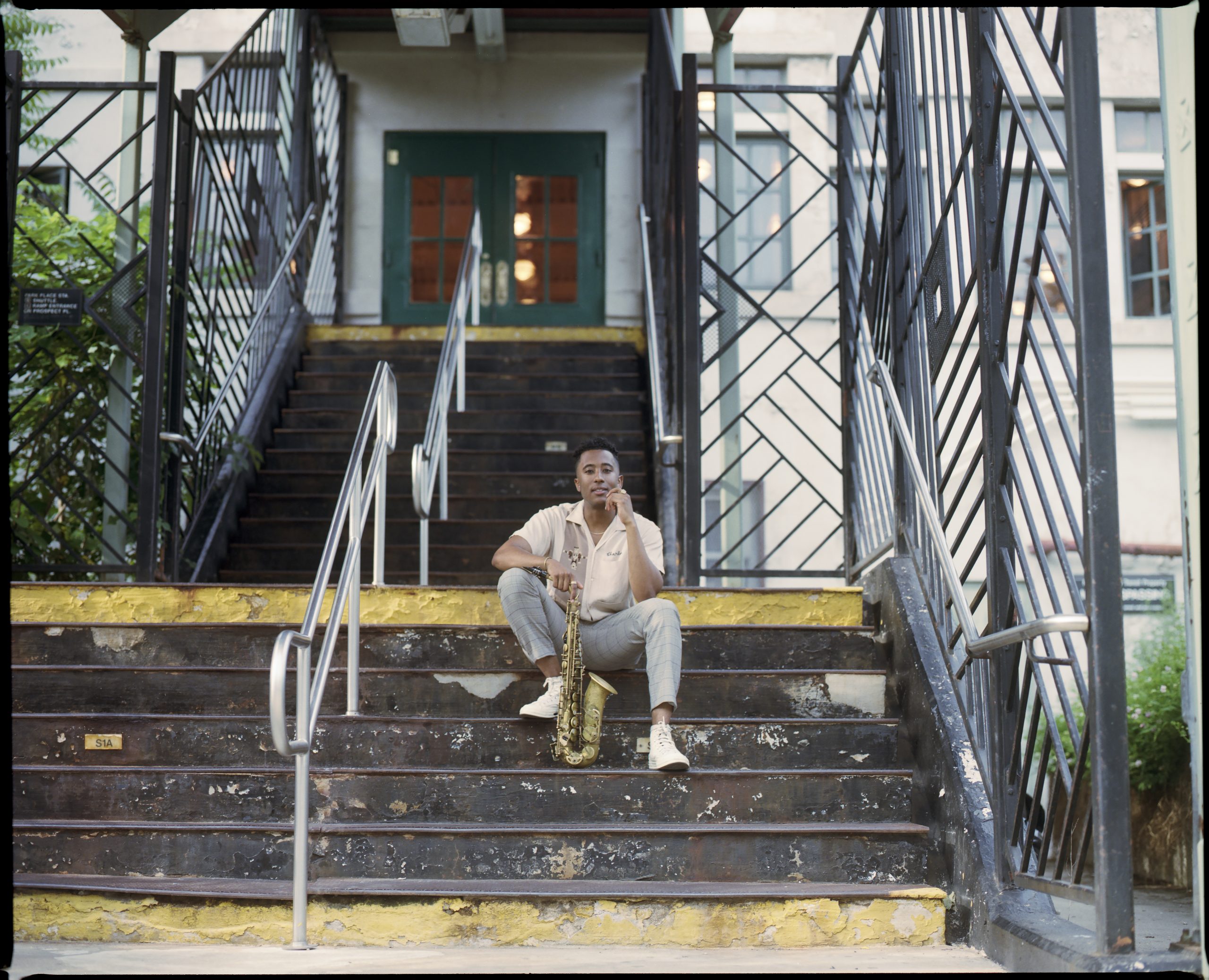← Back
Braxton Cook, Saxophonist/Songwriter
Interview, 16 January 2020
Meet Braxton Cook. Alto saxophonist and songwriter who is regarded as one of today’s most exciting young American artists, seamlessly shifting lanes between jazz and contemporary R&B.
When he was five, his mother rented a saxophone for his father’s birthday. Upon hearing his father play “Somewhere Over the Rainbow”, a sonic seed was planted in the young boy’s head.
Both of his parents were distinguished academics. Yet music was always present around the house and became the focal point of attention for young Braxton Cook.
It didn’t take long before it was taking up the majority of his time.
After playing in various jazz ensembles and developing as an alto saxophone player throughout his school years, Cook enrolled at the esteemed Juilliard Music School in New York City in 2011. It was during this time that his musical network started to expand, and he suddenly found himself on tour with Grammy Award-winning trumpeter and recording artist Christian Scott. A time that taught him a lot about the life of a recording artist.
Today, he is hailed as one of the most exciting young artists on the rise. Both as an alto saxophone player and as a songwriter, having released three albums as a solo artist so far.
His music is a solid and neat hybrid of traditional jazz and contemporary R&B, having that “in the pocket” feel and sound so common to most young jazz players who came of age listening to hip hop and R&B.
He has played with prolific musicians such as Christian Scott, Wynton Marsalis, Tom Misch, Christian McBride and many more.
We talked to Braxton about his journey so far, the pros and cons of being an academic in pursuit of a career in music, lessons learned from the greats and his favorite memories from 2019.
What were your early years like?
– Both my parents were academics and took academics very seriously; they both went to Princeton. That was kind of the vibe of the house. We read a lot. My dad would have me do book reports and in between I would play a piano we had in the house. Everyone played but no one really pursued it in that sense, except for my mom, who was a classically trained pianist. Music was always there, part of the overall culture of the household, but not necessarily the main focus. We spent a lot of time in church too, went to bible study.
My dad went to Harvard Divinity School and is also a pastor. I have three brothers, so we played a lot of sports, mostly basketball and stuff.

Did your mom teach you how to play the piano?
– Yeah, but eventually I got another teacher a few years later. I think it was just a lot to try and teach the four of us. But she showed me the basics of course.
At what point did you figure out that music was something that you wanted to pursue?
– I guess it was when I joined a jazz band in high school. Wynton Marsalis came to my school to do a masterclass. I played lead alto sax in the band and he would point me out a lot, having me solo over and over and over again. He was really bigging me up and boosting my confidence. We talked afterwards, one on one and he really inspired me and made me believe that I could really do this. That masterclass really changed the way I was thinking about my future.

“I think by being as honest as we can, we connect with more people than we might realize.”
After high school you attended Georgetown University where you majored in English and African American studies. Then you transferred to Juilliard, a classically oriented music school.
What made you want to apply for Juilliard specifically?
– My father actually teaches law at Georgetown. All my brothers went there too so we are definitely a Georgetown family. I had a lot of friends from high school who had gone on to pursue music full time, and a few of them went to Juilliard and told me I should come check it out. After two years at Georgetown I was trying to figure out what I really wanted to do
and when my friends called me, I decided to transfer and move to New York.
I’ve heard that you felt constrained by the academic pressures at Juilliard; what are your thoughts on musicians focusing on academia rather than just playing live a lot?
– I definitely learned a lot in school. But I could have started two years earlier, a lot of energy seeped out of me thinking about spending six years on my undergrads, I really felt like I wanted to get going with my career. Plus, I was older than most of my peers. My head was in a different place, I had bills and was ready to work. At the age of twenty-five I was ready to go. But it’s a case-by-case of course. For some, school is really crucial in a lot of ways, and some people have a clear vision for what they want to do and should go right after it.

During your studies in New York you started touring with trumpeter Christian Scott.
What did you learn from that experience?
– Mostly it taught me about the business. About touring, about marketing and all types of things connected to the music business side of things. Christian is very open and transparent and would always break these things down for me, and if you ask the right questions you learn a lot. I learned so much from him just from talking. How to produce a record, how to market it, how to set up a tour. He did the same thing when he was younger and was playing in other musician’s bands, so he was just passing that knowledge on to me.
The late, great Roy Hargrove famously said: “Take care of the music and the music will take care of you”. Did you ever have any doubts about being able to support yourself as a musician?
– I guess I always had doubts in the back of my head, but I always knew that I would figure it out somehow. As soon as my vision became clearer, I realized that I could have it all.
I studied the people who were able to have families and still tour and do it all simultaneously. You have to constantly reevaluate your goals and look for the people who are doing what you want to be doing, and at what level you want to be doing it at. Then you kind of model what they are doing in your own way. That is how I went by doing it and overcoming the doubts.
There’s a great quote from Charlie Parker on your website: “If you don’t live it, it won’t come out of your horn”. What does that quote tell you?
– To me it tells me to always be transparent and honest in my music. I think by being as honest as we can, we connect with more people than we might realize. As opposed to going the other way around. Connecting to the human condition and what most people are feeling. Think small to go big, if that makes any sense.
“Don’t get too caught up with this idea of perfection and technique at the cost of expression, narrative and emotional transparency.”
Life as an instrumentalist involves thousands of hours of practicing.
Where do you find the strength to endure and keep trying to evolve as a musician?
– I don’t know! But to me, it does not feel like work at all if I’m being honest. I love it so much, it’s a joyful obsession. My first love.
How has the experience of touring across North America been for you, especially in this day and age?
– This past year I’ve toured North America with Tom Misch, Marquis Hill and with my own band and it’s been absolutely incredible. Touring with my own band especially is amazing because my band is comprised of my best friends, so it’s a super fun time on and off stage. Also, our U.S. touring consists of mainly hard ticket club shows so it’s a whole different energy performing in packed rooms full of college kids and other people my age. The Jazz Festivals that we do are typically more subdued in comparison to our North American Club tours.

What is your favorite musical memory from 2019?
– I have so many amazing musical memories from 2019 alone, it’s really hard to pick. If I had to pick one, I would say performing at the grand opening of The Shed for Steve McQueen’s Soundtrack of America this past April was definitely a highlight for me. The concept behind the show was to honor and celebrate the deep history of Black Music in America. So, it was a very musically diverse lineup of artists. I was fortunate enough to share the stage with Phony Ppl, Tank and the Bangas, Kelsey Lu, Brandee Younger, Jade Novah and many others. Then we all got to talk to Quincy Jones about music, art and culture. Honestly, The Shed was definitely an incredible life altering experience for me.
What would be your best piece of advice to a young musician who is just starting out?
– My piece of advice to a young musician would be to figure out what moves you emotionally and find what it is youwant to say as an artist. Then communicate that message through your music as honestly as you can. Don’t get too caught up with this idea of perfection and technique at the cost of expression, narrative and emotional transparency. There has never been a you before, and there will be another you. So be yourself to the fullest.
For more please visit: www.braxtoncook.com